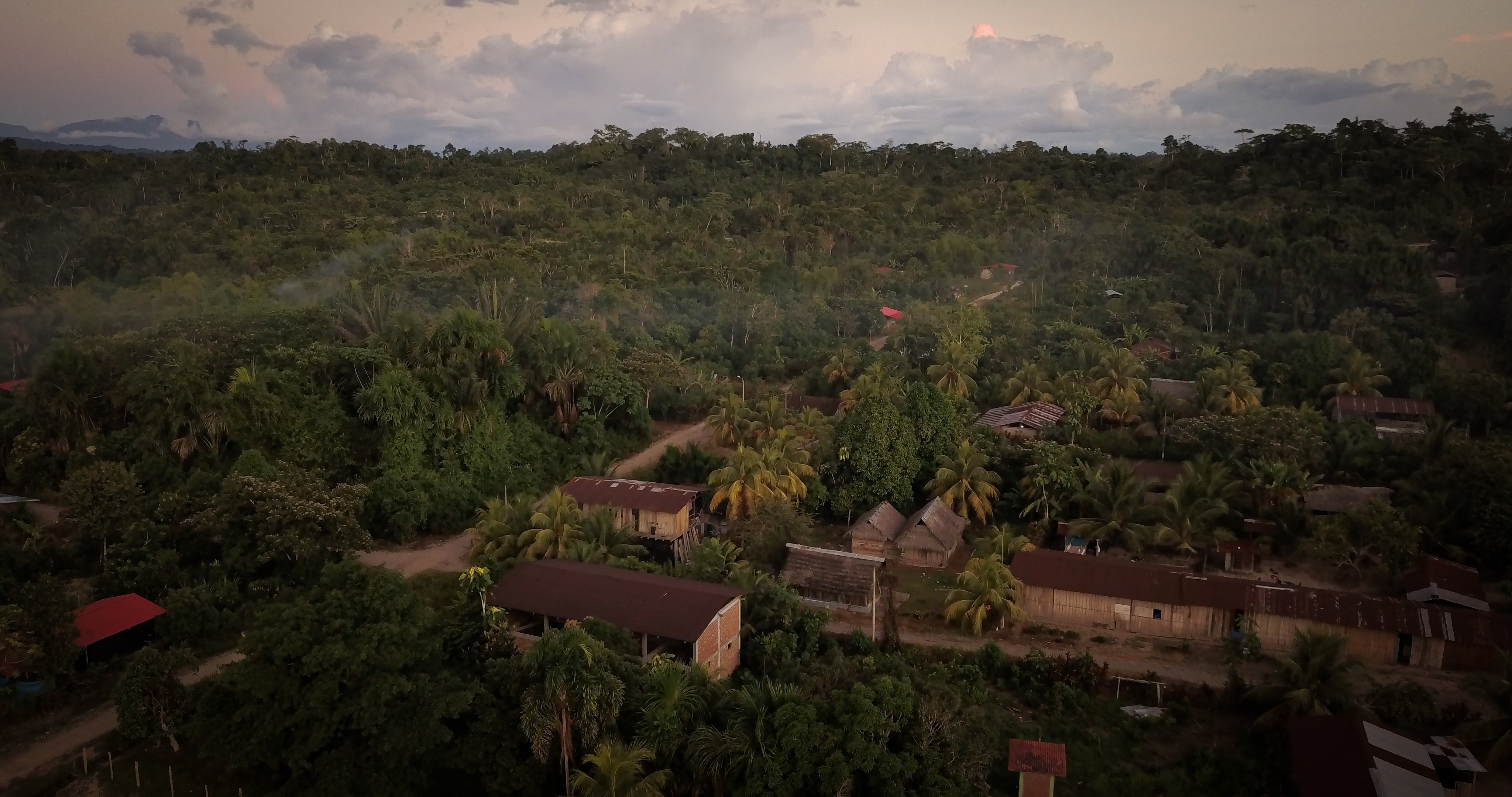New Analysis Highlights 1% of UK International Climate Funding Could Help Protect Rainforests

Giving 1% of the UK’s climate finance directly to people who live in rainforests is the most cost-effective way to protect forests and stop the climate crisis.
UNITED KINGDOM, June 12, 2025 /EINPresswire.com/ -- According to climate change charity, Cool Earth, this simple solution could save as much as 33 million tonnes of carbon from being released into the atmosphere each year.It is an idea that the charity put to Government officials and environmentalists this week during an event led by Tony Juniper MBE, Lord Deben and Baroness Natalie Bennett.
Matthew Owen, Director of Cool Earth said, “We’re asking for £115 million(1) just 1% of the UK’s climate finance funds to go straight to rainforest communities, the people who have been protecting tropical forests for thousands of years. With this small shift, we could keep 33 million tonnes of carbon locked in the ground, year on year. This method is cheap, it’s proven, and it works.”
According to the World Resource Institute, Indigenous Peoples and local communities hold or manage 54% of the world's remaining forests. As of 2020 there are 1.13 billion hectares of intact forests in the world. 610 million hectares of this is looked after by Indigenous peoples or local communities.(2)
Cool Earth has been demonstrating this model for 17 years with rainforest communities in Peru, Congo Basin and Papua New Guinea. Ensuring that 99% of the 2.1 million acres of rainforest it covers is intact. With the added bonus of providing Indigenous communities with economic security and autonomy.
Environmentalist and Chair of Cool Earth Tony Juniper CBE adds. “Empowering people who live in the forests can have a greater impact at a much lower cost than carbon offsetting or market based initiatives(3). What was clear in this morning's gathering was that this kind of cost effective approach would not only help prevent deforestation and contribute to meeting the climate crisis, but that spending 1% of climate money in this way would also address a wider-range of the Sustainable Development Goals and continue to cement UK leadership on the global stage.”
“We would not only ensure the survival of vital ecosystems at an extremely low cost but also strengthen the livelihoods and rights of those who are at the forefront of the climate crisis. I'd call it the bargain of the century.”
“With the window for climate action closing rapidly, the UK Government must embrace new and cost-effective approaches to climate finance. By doing so, we can achieve meaningful climate stabilisation and adaptation.”
Cool Earth urges MPs to back the 1% initiative and act swiftly to ensure that the UK’s climate finance commitments deliver real, lasting impact for both people and the planet.
To find out more about Cool Earth visit https://www.coolearth.org/
ENDS
References:
1. The last government's commitment to £11.6bn of climate finance - also known as UK’s International Climate Finance (ICF) - from 2021/22 to 2025/26 will continue to be honoured. This includes at least £3 billion on nature, from which £1.5 billion will be dedicated to protecting and restoring forests, and £239 million specifically allocated to tropical rainforests, announced at COP29 in Baku (UK Government, 2024).
2. World Research Insitiute data on how much tropical rainforest is managed by Indigenous peoples and local communities https://www.wri.org/insights/indigenous-and-local-community-land-rights-protect-biodiversity
3. 1% briefing, including calculations
Editors notes
○ Cool Earth partners with Indigenous Peoples and Local Communities who live in the rainforest and who have historically been the best at shaping and stewarding these ecosystems.
○ Protecting the three largest rainforests in the world is the most scalable and cost-effective solution against the climate crisis.
○ Founded in 2007, Cool Earth pioneered an unconditional cash transfer model to support Indigenous peoples and local communities against threats to their lands and rights.
○ Supported by a board of trustees led by Dr Tony Juniper CBE and including people such as Gillian Burke, as well as ambassadors such as Johan Rockström, Cool Earth is committed to developing rights-based approaches as essential solutions to the climate crisis.
For interviews please contact
Kaite Helps
+44 7766 934285
Kaite.helps|coolearth.org| |Kaite.helps|coolearth.org
Legal Disclaimer:
EIN Presswire provides this news content "as is" without warranty of any kind. We do not accept any responsibility or liability for the accuracy, content, images, videos, licenses, completeness, legality, or reliability of the information contained in this article. If you have any complaints or copyright issues related to this article, kindly contact the author above.
Warehouse Robotics Market to Reach $31,343.7 Million by 2032 at 18.2% CAGR: Allied Market Research
Nano Gold in India Market Growth Analysis Report with Future Business Scope and New Investment Plans by 2027
Packaging and Protective Packaging Market to Reach USD 1.5 Billion by 2031, Expanding at a Steady CAGR of 4.3%
Kalendarium
Więcej ważnych informacji
 Jedynka Newserii
Jedynka Newserii

 Jedynka Newserii
Jedynka Newserii

Prawo

KE proponuje nowy Fundusz Konkurencyjności. Ma pobudzić inwestycje w strategiczne dla Europy technologie
W środę 16 lipca Komisja Europejska przedstawiła projekt budżetu na lata 2028–2034. Jedna z propozycji zakłada utworzenie Europejskiego Funduszu Konkurencyjności o wartości ponad 400 mld euro, który ma pobudzić inwestycje w technologie strategiczne dla jednolitego rynku. Wśród wspieranych obszarów znalazła się obronność i przestrzeń kosmiczna. Na ten cel ma trafić ponad 130 mld euro, pięciokrotnie więcej niż do tej pory.
Firma
Były prezes PGE: OZE potrzebuje wsparcia magazynów energii. To temat traktowany po macoszemu

Choć udział odnawialnych źródeł energii w miksie energetycznym Polski jest stosunkowo wysoki i rośnie, to ten przyrost jest chaotyczny i nierównomiernie rozłożony miedzy technologiami – wskazuje Forum Energii. Dodatkowo OZE potrzebują wsparcia magazynów energii, a zdaniem Wojciecha Dąbrowskiego, prezesa Fundacji SET, ten temat jest traktowany po macoszemu. Brak magazynów powoduje, że produkcja energii z OZE jest tymczasowo wyłączana, co oznacza marnowanie potencjału tych źródeł.
Infrastruktura
Wzrost wynagrodzeń ekip budowlanych najmocniej wpływa na koszty budowy domu. Zainteresowanie inwestorów mimo to nieznacznie wzrasta

Budowa metra kwadratowego domu w Polsce kosztuje od 5,55 do 6 tys. zł w zależności od województwa – wynika z najnowszych analiz firmy Sekocenbud. Najdrożej jest w Warszawie, gdzie cena za metr kwadratowy domu przekroczyła już 6,2 tys. zł. Na przyrosty kosztów budowy domu wpływają zarówno drożejące materiały budowlane, jak i wyższe wynagrodzenia pracowników. Inwestorzy nie rezygnują jednak z budowy domów jednorodzinnych, co ma związek m.in. z wciąż wysokimi cenami mieszkań czy też obniżką stóp procentowych.
Partner serwisu
Szkolenia

Akademia Newserii
Akademia Newserii to projekt, w ramach którego najlepsi polscy dziennikarze biznesowi, giełdowi oraz lifestylowi, a także szkoleniowcy z wieloletnim doświadczeniem dzielą się swoją wiedzą nt. pracy z mediami.











.gif)

 |
| |
| |
|